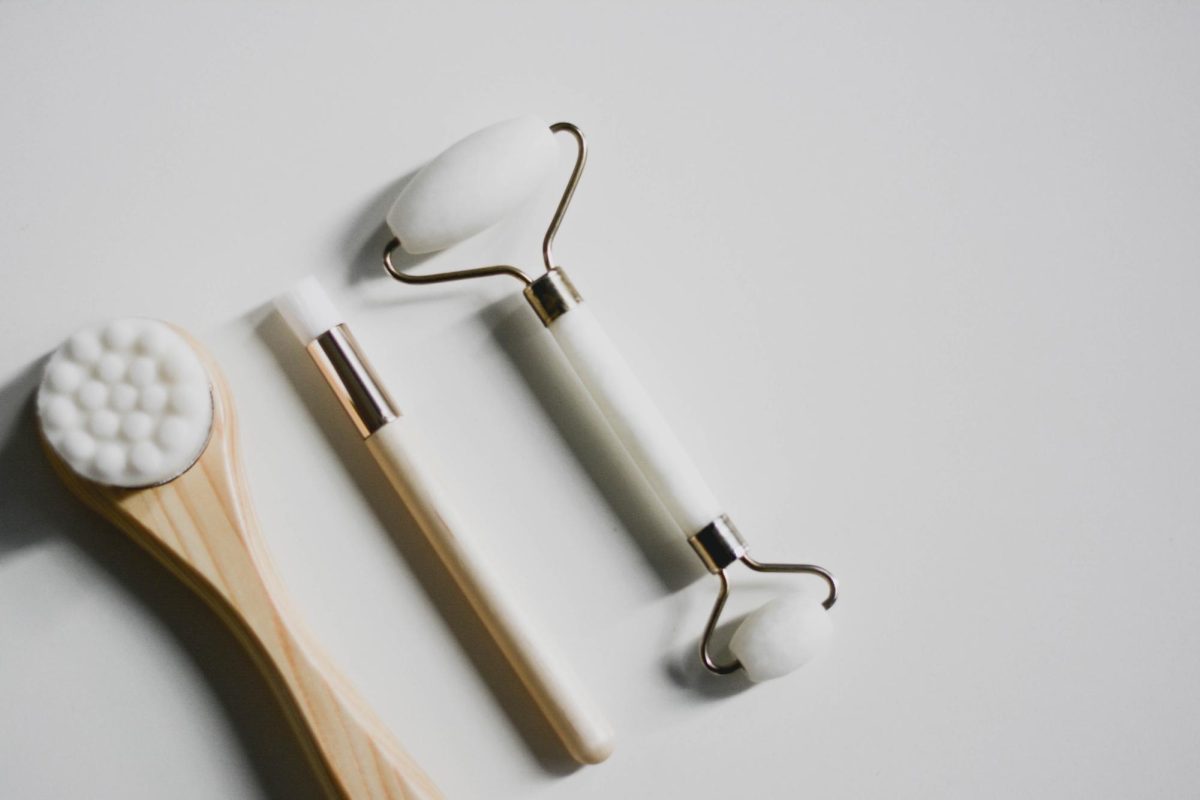As the frantic frenzy of finals week approaches, self-care is probably the last thing on your mind.
Being a chronic workaholic myself, I concur. However, if you’ve been on social media, you’ve likely seen the shorts, videos and posts that promote the glamorized concept of self-care. While this trend isn’t anything new — it appeared in the form of the “it girl” trend a few years ago — it has reached a fever pitch lately.
Self-care is typically defined as the action of improving one’s physical and mental state. Currently, it mostly focuses on using various spa tools and products in the shower to exfoliate, cleanse and scrub one’s woes away. A quick Google search and foray into the shopping tab reveals keywords that repeatedly pop up: “self-love,” “glow-up” and “wellness,” to name a few.
I’m a firm believer in taking time to care for yourself, but the word choice used in advertising creams, masks and serums can be misleading.
Take the word “self-love,” for example. Yes, it is important to develop a good sense of self-worth, but does it mean one has to buy dozens of expensive products to do so? The pressure of financially committing to “loving” oneself is impractical. When buying products reinforces the idea that one must pay a certain price to care for themselves or spend a lot of time following a routine to achieve unrealistic results, the trend is damaging.
Beyond the materialism that is promoted through glorified “self-care,” the concept of needing to change one’s physical appearance to achieve a “glow-up” is harmful. We’ve all seen it before: the main character’s beauty is hidden by glasses or unruly hair, and they undergo a dramatic makeover after which everyone finally realizes how attractive they are.
The idea that one must conform to societal standards of beauty has been utilized by companies to sell products. They claim that their products will help one “glow up” and obtain validation and acceptance from their peers. Feeling confident in one’s own body isn’t a bad thing, but it shouldn’t require spending money on certain products or feeling bad about features that society deems unattractive. Glowing up should mean a sense of innate worth, creating a glow that emanates from within.
Social media doesn’t help with this. Influencers’ professional lighting and camera angles show only aesthetic shots of their self-care routines, often ending with a “body check” revealing toned muscles and flawless skin. While they get paid to show their lives’ highlight reel, everyday people do not, and this type of comparison is dangerous. We already know how social media perpetuates anxiety and depression, and when something good — taking time for oneself — is turned into a stressor and mode of comparison, there is clearly something wrong.
I have no qualms with this form of self-care; I enjoy a good body scrub as much as the next person. Regardless, people should be cautious when scrolling through self-care content, because making time for yourself looks different for everyone. For a long time, I avoided taking breaks because I felt like they were not productive enough; they failed to fit within the rose-tinted vision of what I believed to be proper self-care. I wish I knew that it was perfectly acceptable to watch “Dance Moms” on the couch, or brew a cup of loose-leaf tea, since those activities help me relax and do something kind for myself.
Self-care should not be a monetary concern or another goal that seems so far out of reach in one’s life. It can be as simple as remembering to eat or take your medication, because as my friend likes to say, “you have to do what’s best for yourself.”
Grace Chai can be reached at [email protected].



















